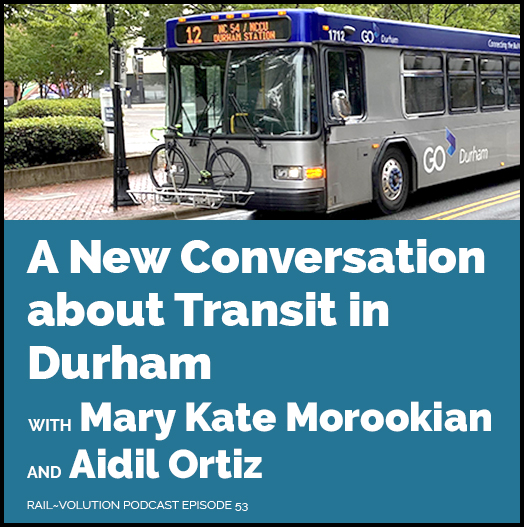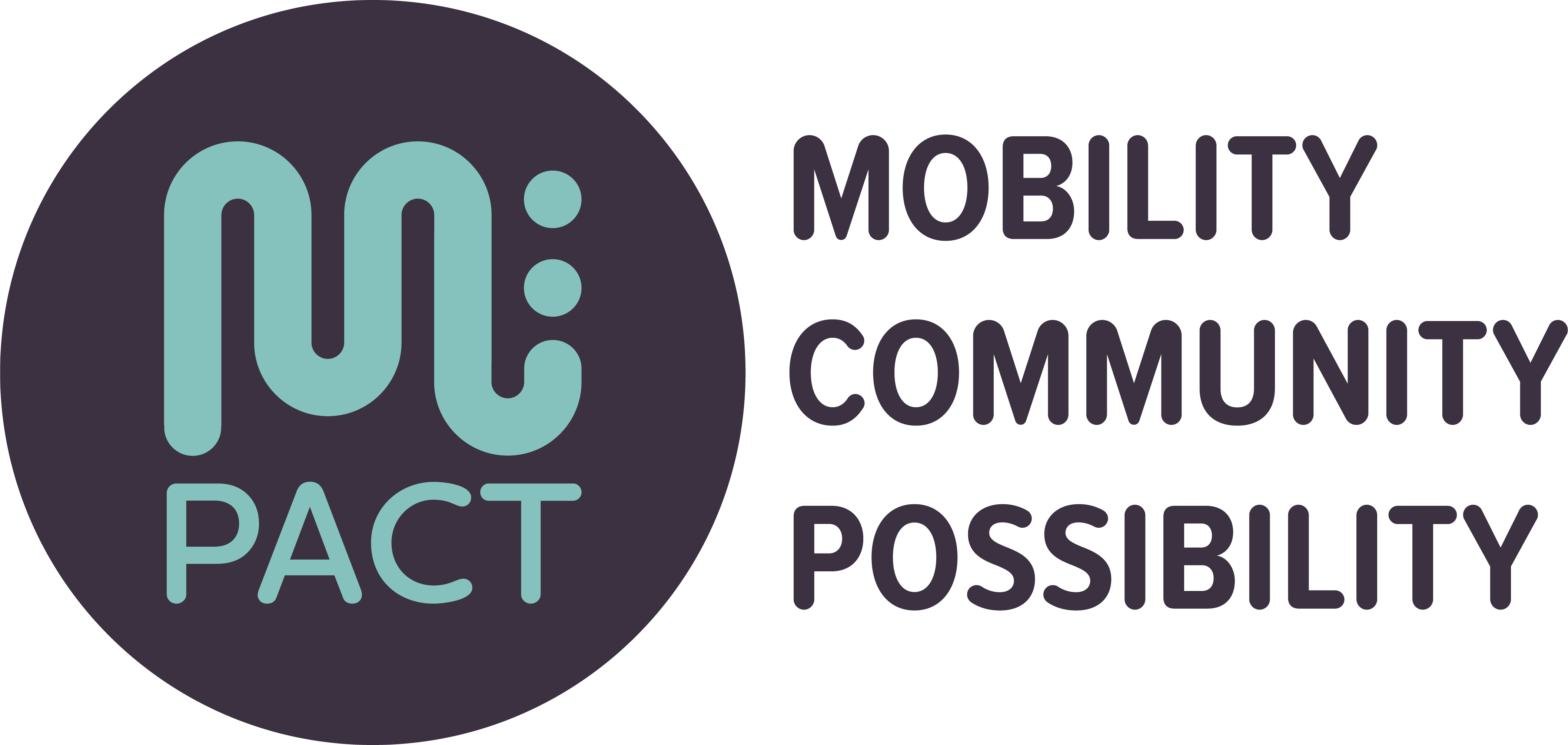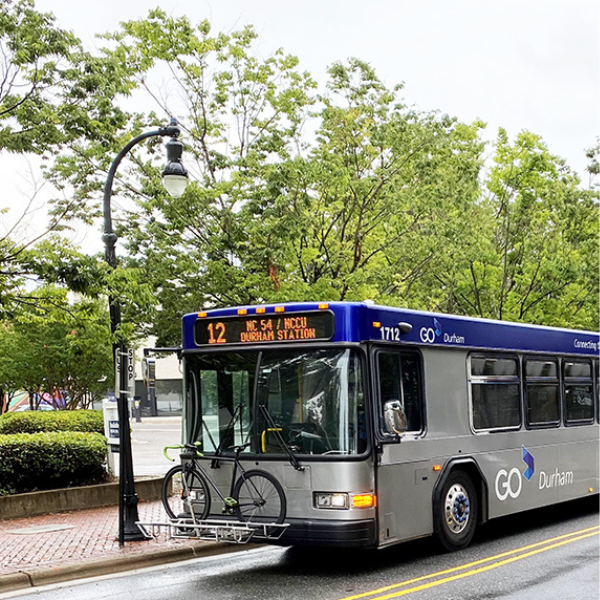Episode 53: A New Conversation About Transit in Durham
Listen in on a conversation between Mary Kate Morookian and Aidil Ortiz about how “hard to reach” community members are helping shape an update to the Durham Transit Plan. Morookian is a transit planner in Kimley-Horn’s Raleigh office and Ortiz is founder and owner of Aidilisms, a consultancy that focuses on connection, culture and equity, based in Durham, North Carolina.
Topics: Community Engagement, Transit, Transit Riders
Tags: Aidilisms, Durham, NC, Mary Kate Morookian, Aidil Ortiz

When the proposed Durham-Orange Line Light Rail project was discontinued in 2019, a new public engagement process was launched to determine how to reallocate the funds and update the Durham Transit Plan, which was originally approved in 2012. The update became an opportunity to revisit basic assumptions about transit, who rides it, what they say they most need and who might ride under different scenarios.
New expectations about equitable community engagement also shaped the approach. This podcast tells the story of using Engagement Ambassadors to reach everyday transit riders, people who are low income or housing insecure, people with disabilities, seniors, and youth. Aidil and Mary Kate describe the collaboration and communication involved in creating training materials and surveys. The use of Engagement Ambassadors alongside traditional workshops and surveys resulted in community feedback that matches the community: a demographically representative sample.
One big take-away from community engagement: people are less focused on the “big project” than on making sure transit works better for them. People are “agnostic about how we deliver as long as we deliver,” Aidil said. They want to be able to get to jobs, get home from jobs, and pick up kids from daycare. They want more frequency, later service and direct connections so that they don’t spend so long in transit. Community feedback also focused on bus stops, sidewalks and safety.
Feedback from the community is being used to plot the preferred scenarios of projects, to make sure that projects could be paid for by 2040, which is the life of the plan. Then the revised plan will go to a vote.
“It’s a planner’s inclination to have something special. . . . There are big shiny projects that make people excited, but people are also excited about being able to get home from work on time. And they’re excited about having 15-minute service and a reliable transit system.” – Mary Kate Morookian
“Start with those who have been hurt the most by past plans, by past development in a community, by economic disparities. . . . There is no community that is not rich in that asset. Do you value those people and center them in your process and invite them into a conversation that’s honest?” – Aidil Ortiz
Resources and Links
Featured Guests
Mary Kate Morookian, Transit Planner, Kimley-Horn, Raleigh, NC
Aidil Ortiz, Founder / Owner, Aidilisms, Durham, NC


